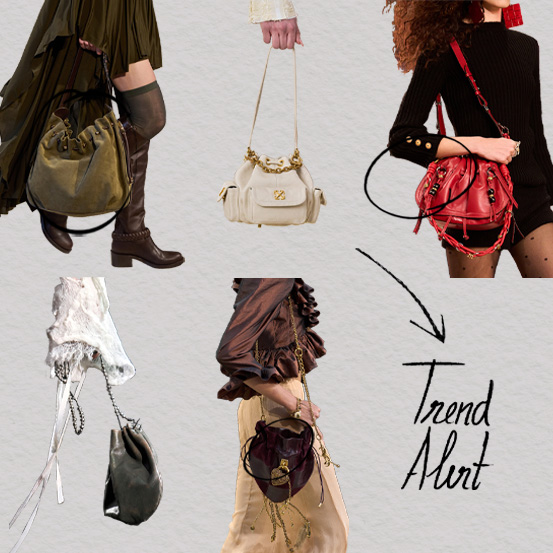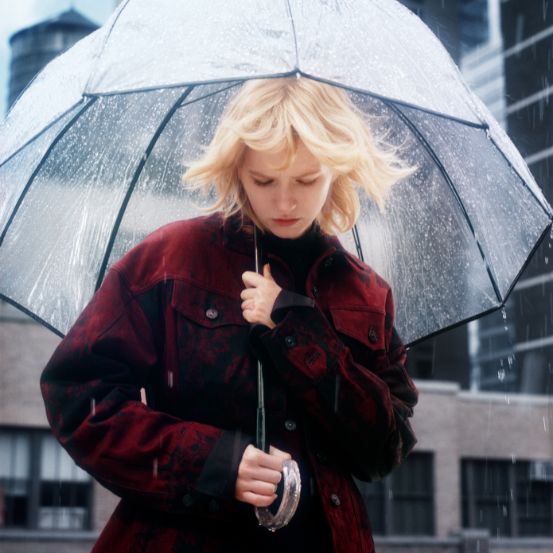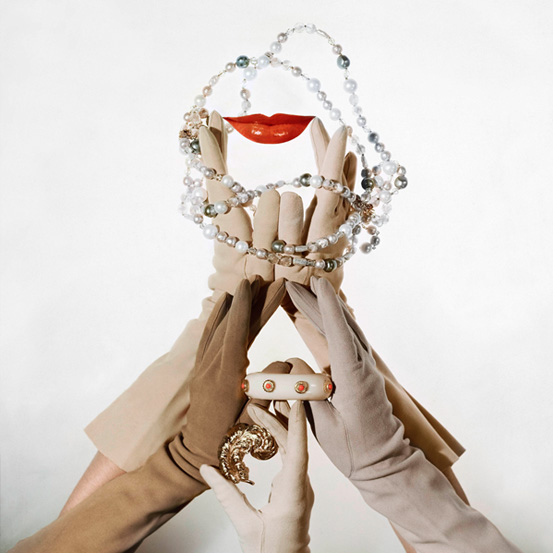Let's say no to regimes, even if it's a food one. Let's fight for our right not to be vegetarians, vegans or any other thing that's not whatever we feel like.
Let's put up signs with cry outs: "I want to have seconds and thirds of my feijoada [bean & meat stew]", "No tourist portion for me", or "You can take the plate, mate, I'll eat directly from the platter", in the streets of our cities. Let's say no to regimes, even if it's a food one. Let's fight for our right not to be vegetarians, vegans or any other thing that's not whatever we feel like. Photography by Evelyn Bencicova.

Except for that meme with a picture of Stalin with the phrase "Dark humour is like food. Not everyone gets it", which is funny, but it's not for everyone, we could establish a parallel between politics and food. Far-right, veganism. At the other end, crudivorists. In between, moving gradually, you'd go from vegetarians to lovers of animal protein. Exactly, they are regimes. Food regimes, because the others only get that label if, in its core, freedom is supressed. Because that's what we're talking about here. Today, with virtually everything at our reach on the shelves of the most general to the most specialized supermarkets, we are free to eat whatever we want. To follow the food diet we most like or consider to be, empirically or scientifically, the most beneficial for our health. Then, there are those who just don't give a crap to the food regime that is healthier for them. They like to eat, period. It's the new-glutons, the ingestion democrats. They want to taste everything and make sure that there is enough for everyone. They demand liberteaty, one that is our right, unquestionable and universal. Never again prevent us from, in the most civilized wedding, from invading the buffet at the reception before the bride and groom inaugurate the dancefloor with that boring and repetitive austrian waltz (Austria, that place where people love a good schnitzel, an exotic name for something that is nothing more than a flavourless piece of breaded meat) or from becoming in awe before the shrimp cascade or the piglet with the Alcobaça Golden apple in his mouth (whoever devised that prop should be forced to eat schnitzel for lunch and dinner for the rest of his life). May they never steal us from the charm that is not being able to choose, already with a questionable wine in a foggy glass in hand and looking into the window of a Lisbon tasca, between the "iscas de cebolada" [liver slices with covered in onions], the breaded cod fish, the boiled pig's ear, the marinade of small sardines or even the boring boiled egg poetically resting on a plate of coarse salt like Jesus on a manger, that keep shutting doors to make room for another burger joint in the corner, in the neighbourhood, gourmet, chef-made and "of whoever comes well intended, may come as well" to tear down the traditional of a city, scaring off their locals to the suburbs, where at least the snack bars still have cod fish pastries without "queijo da serra" cheese. Liberteaty is beautiful. Unquestionable. And I pity the fool that dares to go against it. Like in that beautiful day, november 11th, 1947, in which Winston Churchill is said to have said, the Chamber of Commons: "Democracy is the worst form of government except for all others", but this time with a "bifana" [pork steak] dripping mustard and fat on the floor and toasting with whatever you have at hand.
Just this week there was a car crash in a portuguese national road. Nothing new, thus far. A TIR truck got suspended from a bridge. Normal, as usual. The driver was ok, no injury sustained. That's good. Except the vehicle was carrying about 300 pigs for the slaughter house. Over a hundred of them layed on the bottom road. Many of them lifeless or still, in a pile, a big pink mass, compact here and there, some others spread in the vicinities. As someone, filming without anyone knowing, zoomed in, you can see dozens of animals in agony, bloody, dying, some with fractured paws, trying to rise, others with a broken spine, unable to do more than having their nose in the ground, in despair. The worst isn't the footage. It's the sound. It's not grunts. It's screams. Hundreds of them. In a deafining unison. You don't have to be a vegetarian to not be able to sustain watching more than half of this clip. But sometimes, these few minutes are all it takes to make us, in conscious, change our food regime. I, like many others, truly enjoy a traditional "enchido" [sausages]. Relish at the sight of stewed porks cheeks. Mouthwater with pig's tails (bottoms, for the mischiveous ones) with lots of coriander. I miss scrambled eggs with brains, they'd make us "smarter", they told us when we were kids (it didn't work, mom, but thanks anyway) as much as eating carrots made our "eyes pretier". But I assure you, promise, scout's honor, swear to god and whatever more, if I was obligated to kill an animal to eat, I'd become the most credible veggie there is in a matter of seconds. And there are those who know how we, "urban carnivores", function.
For example... every Easter, the father of a friend of mine, that raises sheeps, knowing I'm an unconditional lover of lamb ((I'm the son of Alentejo folks, I have to be, to yearn for a piece of that oh-so noble meat, other ways I'd be left out of the will) announces he wants to give me a piece. All I have to do is go there, near Portalegre, pick the animal and help kill it. The first part of the proposal appeals to me dearly. The second part makes me say no. But every year gone by, the offer is softened. Now, I only have to go there and "pick" the creature. The rest is on him. "Yeah, not gonna work", I always say. Seeing myself pointing fingers, like Herodes, to the one that should die for my own consumption? Deciding who lives or dies? No can do. It's that comfortable distancing that allows us to be so frugal when eating meat. Red, white, fish, seafood, even cephalopods (the octopus and the squid have an intelligence similar to that of monkeys and dolphins), after all, we eat everything that moves and, worse even, at all meals. Because there's someone doing the dirty work for us. There are those who raise them, in super confined spaces, treated poorly, there are those who transport them and, in the end, there are those who kill them, supposedly in ways that are more "humane" that the usual stab to the heart, but in a process that's so industrial and with such mechanical gestures that we would have to be very naive to think that, daily, there are no half-dead animals when they're stabbed the wrong way, just as a screw can go missing in an automobile assembly line. We go to the butcher and point, there, that's it, no guilt, no pain. We are, today, very far away from the time when each home fed their pig with the purpose of, by the end of the year, engage in the very traditional killing of it, one that would result in provisions for the pantry, and not without throwing a party for the neighbourhood and whoever was willing to help. The animal protein was scarce. Almost reserved only for special days. The frugalness was so mandatory that, during Estado Novo [Portugal's dictatorship's time, from 1933 to 1974], there were generations built on "Sopas de Cavalo Cansado" [Tired Horse Soup] (consisting of wine, bread and sugar). Why? Because there was no freedom. Neither of choice, nor of the other. Today, luckily, we can be whatever we want. What food regimes are concerned, that is. And, ok, in one or two other things.
What about an animal's freedom? Isn't that a freedom? There's human freedom and animal freedom? Tere are different guidelines for each one of them? We're shocked if a dog is in a farm, chained with a two-meter leash, because it's a pet, but all is ok when a pig is confined in a two by one and a half meter because his faith is our consumption? Are there no people with pigs as pets? Are there no cultures that eat dogs? And what about those animals that live in a delusional freedom that are the big pastures of Azores islands, or other green pastures somewhere, to produce milk that only exists if they're in constant reproduction, also meaning that their offsprings are removed from them as soon as they are born? Or the bulls, that roam freely the sceneries of Ribatejo barely guessing their end, in an arena filled with applause from the bull fight fans? Either you redefine the term freedom or, on the other hand (which is the right one), freedom is an universal concept. Based on this principle, we have the freedom to be, for example, vegan. When we don't allow any animal to be exploited for our own food pleasure. There'll be no one sole death with the purpose of feeding them (for a vegan, meat smells like blood, no matter how it's seasoned, as said Morrissey in Meat is Murder by The Smiths). Eggs are destined for the reproduction of bird-like species and not for our palate. They are, actually and ill-compared, like the menstruation of the chicken, be it noted. The milk is the sustinent a mother gives to her offspring, not the calcium reinforcement to humans, that can find it in a thousand plants, if they learned how to eat healthely. Debatable? Yes! But we are free to choose and that is beyond any discussion.
Now, the vegetarian, on the other hand, much softer in what concerns his restrictions (or in what lacks his freedom of choice), is in that ungrateful place where I wouldn't want to be in. His vegan friends look at him with the desdain of one who thinks higher of himself, criticizing, many time in between mumbles, the merely partial respect for the animals: "doesn't eat them, but exploits them". For his omnivirous friends, that just finished dinner with a puddle of blood in their dish after eating, all by themselves, a Grizzly Bear portion size of Mirandesa beef chop, it's that "annoying" friend that you can't take to restaurantes with you because, poor thing, he ends up always having a cheese omolet and nobody can bare a cheese omolet at their fifth consecutive cheese omolet in those weeks there are dinner parties every day, like on Christmas time or Alvor vacations. That's why flexitarians are here. "That", meaning, to add fuel to the fire. The flexitarianist is, in theory, a vegetarian most of the time that, now and then, nibbles on meat or fish. In reality, it's that friend who's making a huge effort to stop eating meat for good. Spends his week proud of ingesting broccoli with a drizzle of olive oil and grilled asparagus, chickpea soup with croutons and seitan bean stew, sharing enthusiastically the results of his "knack for chef" on social media. Then you invite him for a dinner out on a saturday night and he asks for a portion of "lagartinhos" [pork meat], two "bitoques" [slices of beef usually with egg on top] and, for dessert, an Abade de Priscos pudding [includes bacon] that particularly tastes of the pancetta on his constituition. Then he calls you the next morning, saying he's a "bit indisposed". We ask him why was he so willing to such an exageration, to which he replies: "Because I felt like it. I'm free."
One time, I saw a documentary on food regimes that opposed over-the-top vegans to excessives crudivorists. As I never tought they were the complete opposites, it caught my attention. For the first, the documentary pictured a family (mom and two small kids) sitting under an apple tree. They were waiting for the fruits to fall out so they could eat them and then dispose of the seeds at the same place, so they wouln't interfere in nature's usual course. Visibly malnourished (and a tad raggedy), the children were also interviewed and it was found that they did not know any other kind of reality, let alone go to any kind of school. In this case, the freedom of choice of the mother, might have dictated her offsprings were ripped of their own freedom of choice, but to know that for sure, you'd have to wait for these children to get to an age of free will. And I didn't have that much time on my hands. The crudivorist, on the other hand, which I thought was a lad eating raw carrots, even if he didn't aim for that enviable tan, or leaving the groceries' store nibbling a pack of turnip cabbages, was, in fact, a sinister forty-year-old that entered a butcher's specialized in game meat to buy a wild rabbit. Then, he picked an isolated spot in a playground park to, with a rough knife that badly penetrated the meat in between so much hair, open the animal's belly and feast on its insides, saying to the camera, mouth full of blood: "I only eat wild animals because they don't eat rations". It was a beauiful moment. The children in the swing at the back, looking as shocked as how long they'll remember that picture for the rest of their lives, might not have enjoyed it that much, though.
Now, after 46 years of freedom we fought for, we see ourselves stripped of it. What vile creature stole it from us? The Mediterranean Diet. No more grilled pork "entremeadas", the "feijoadas" we brought from the lands of Vera Cruz, the cow paws with chickpeas we imported from Pakistan, the rice with everything on it and everything with rice on it that conquered Garcia de Orta, the botanical man that, as a servent of his Majesty, the King of Portugal, would go in the ships to discover new species (and he did), the boiled fish with everything, the cod fish with potatos. No more for the fusion cuisine of centuries that was portuguese gastronomy. Fish? Only grilled or on a stew. Meat? Very little and no salt, better use herbs. Vegetables and fruit? Only seasonal. So, we're forbidden to eat a tomato and cucumber salad in Winter time, season our duck with oranges in the Summer or nibble on strawberries in the Fall. We are, dear friends, chained. In theory, at least, In reality, we can, right after this, and because it's the season for them, fill up a pot, pork fat on the bottom, of fava beans with Moira chorizo and lots of chops. Unless we have to be in quarantine, like when we're at war. But that'd be impossible to happen in Europe, right?
Leia a versão portuguesa na edição "Freedom on Hold", publicada em abril 2020, aqui.
Most popular
.jpg)


Relacionados

O que lhe reservam os astros para a semana de 27 de janeiro a 2 de fevereiro
27 Jan 2026


Metal rocks: tudo o que precisa de saber sobre joias, metais e pedras preciosas
26 Jan 2026


.png)